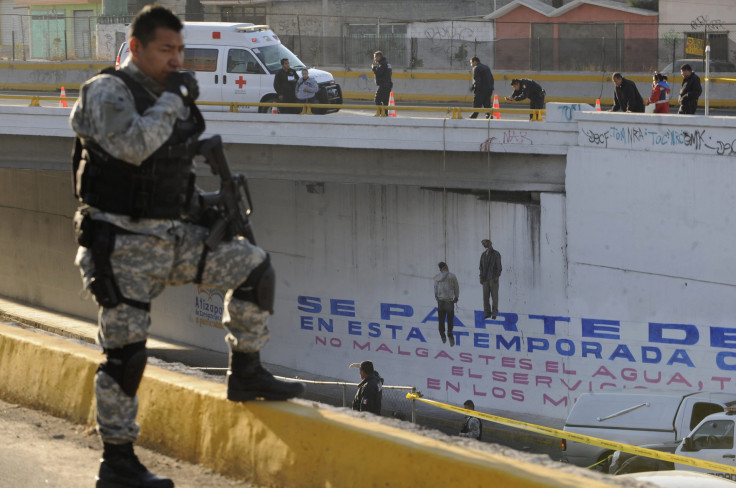
Mexican drug cartels are venturing farther and farther away from the border and sending some of their most trusted agents to live and work deep inside the United States - a bold move that it might mean to tight their grip on the world's most lucrative narcotics market and maximize profits.
If unstopped, cartels' will move into the American interior and render it harder than ever to dismount them, and it will pave the way for them to expand into other enterprises such as kidnapping or human trafficking.
The syndicates used American middlemen to become the nation's number 1 supplier of marijuana, cocaine and heroin in the 1990s, but kingpins have been consolidating power by sending trusted agents to run burgeoning operations. A wide-ranging review of federal court cases and other data indicate that groups have begun deploying agents from their inner circles to the U.S. Cartel operatives are suspected of running drug-distribution networks in at least nine non-border states, often in middle-class suburbs.
So far has it reached, that one of Mexico's biggest drug lords was recently named Chicago's number 1 enemy, even though he has never set foot in the city. A title once worn by Al Capone, Joaquin "El Chapo" Guzman leads the deadly Sinaloa cartel, which supplies most of the narcotics sold in Chicago and in many other cities in the U.S.
"It is probably the most serious threat the United States has faced from organized crime," said Jack Riley, head of the Drug Enforcement Administration's Chicago office.
The problem is not new to the area, but when it loomed in Mexico years ago it was not properly addressed. "And see where they are now," said Jack Killorin from the anti-trafficking program in Atlanta.
Border states from Texas to California have long been dealing with a cartel presence, but now cases have emerged in the suburbs of Chicago and Atlanta, as well as Columbus, Louisville and rural North Carolina. Suspects have also resurfaced in Indiana, Michigan, Minnesota and Pennsylvania.
As organizations became more sophisticated, cartels began scheming to keep more profits for themselves, so they started cutting the middlemen and assuming more direct control. Authorities started noticing a few years ago that cartels were putting "deputies on the ground here," former investigator Art Bilek said. "Chicago became such a massive market... it was critical that they had firm control."
To fight the syndicates, Chicago opened a first-of-its-kind facility where 70 federal agents work side-by-side with police and prosecutors. Their primary focus is the point of contact between suburban-based cartel operatives and city street gangs who act as retail salesmen.
"We know astonishingly little about the structure and dynamics of cartels north of the border," David Shirk from the University of San Diego's Trans-border Institute, said. "We need to be very cautious about the assumptions we make."
© 2025 Latin Times. All rights reserved. Do not reproduce without permission.




